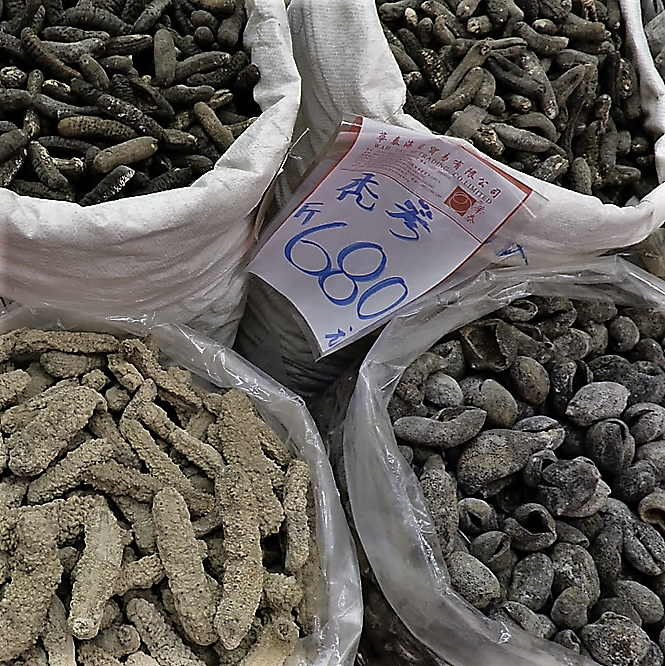HOLISTIC HEALTH? IT'S OLD NEWS IN CHINA!
Health in China
Having worked a lot, over the last couple of years, on health challenges and cultures in China, what struck us most about the Chinese relationship to well-being is how it totally inverts the time line and the definition of progress compared to how we, Europeans and Americans, comprehend contemporary developments.
In a nutshell, for us here in “Western cultures” a very strong duality is building. On the one hand, we know, and accept to some degree or another, that medical sciences and biologists are cooking up an incredible number of step changes in their laboratories, from nano-sciences to body augmentation, and all of these future revolutions are met by us with a mixture of hope, anxiety and fear. The cultural paradigm underpinning these developments is that health is the addition of micro performances that add up to overall health. Tomorrow, if one of our parts fails, we might well be able to replace it or enhance it. In other words, our body is fragmented. On the other hand though, we are more and more embracing a “holistic” view of our general health, perhaps as a reaction to Western medical science’s insistence on treating our bodies as fragmented. We thus reclaim an “organic unity”, whether it comes from “naturo-therapy”, from the organic food movement, common belief psychology or social buzz, e.g. the mindfulness movement. We believe against the fragmentation, one might say the objectification of our bodies, we need to reclaim our holistic ability to be well as a person, not as a sum of healthy organs. And that is precisely where the Chinese medical tradition comes from; as opposed to us aspiring to such unity, the holistic functioning of the person is for them the age-old definition of health.

TCM the paradigm that is the foundation of health's definition.
Of course, a lot of the Chinese younger generation use Western medicine in mainland China, when they can afford access to it. But they also still claim to believe in Traditional Chinese Medicine (TCM), and use it simultaneously. More importantly, TCM is the FRAME of the dominant conception, it’s the paradigm that underpins perceptions and understanding of health.
We obviously won’t even attempt to summarize here a whole historical tradition, and an incredibly elaborate theory. Let’s just say that the Chinese doctors we talked to pointed to us some key fundamental differences versus the Western definition of health.
Health, in TCM, is defined by balance, and the good circulation of energy. Balance between the Ying and the Yang, the cold and the hot, between the inside and the outside. The good circulation of the Qi is the result of this good balance. Imbalance, hence is the mother of disease, and curing is about rebalancing.
There are two remarkable differences with Western medicine. First, the balance occurs differently in every person, depending on individual “biology” and circumstances. A “hot” person will need to balance with cold, and vice versa. The climate needs to be rebalanced, whether it’s hot or cold, dry or humid. The pivotal step of TCM is always the diagnosis, that is by essence always entirely focused on the person, life context, personal physiology, etc… The diagnosis is about finding out about a person’s personal energy, Ying and Yang, organic functions (the 5 elements), imbalances, life-style, habits. The second fundamental difference with Western medicine is that TCM doesn’t believe illness to be limited to a part of the body (of the person), but on the contrary believes it is a functioning or malfunctioning that affects the person as a whole.
The person at the centre.
The Western reader might feel some familiarity when reading the simplistic explanation above, because these concepts are talked about with the increasing popularity of Asian well-being theories and rituals in the West, and are being developed today in a lot of social discourse and practices. However, in our context, they enter our health conversation as a NEW trend, as NEW practices, and, to be honest, as a mitigation of our fear and anxiety towards our own medical culture and science, as an antidote to the hyper fragmentation and functionalization that modern medical discourse imposes on us. And we can all see, in the US and in Europe, friends, family and ourselves engaging in yoga and meditation, whilst also buying health supplements because it is good for our muscles, using an array of pills cause they are good for our bones. The person as a unit and holistic entity is, for us, a project and a horizon, for others, it is a trendy and fun thing to do, but it is not, for most of us, a base paradigm.
Anybody that wants to engage a health conversation with Chinese consumers must understand that for them, mindfulness, the whole-ism of the person, the balance of the body and the mind, the inner energy and the role of vital inner strength, balancing the person, etc… are not new interesting and exciting ideas, but they are the very substratum of their conception of health. And for them, if anything is new and slightly uncomfortable, it’s the way in which we produce miracles by looking at health as the sum of solutions to fragmented problems…
A&P
